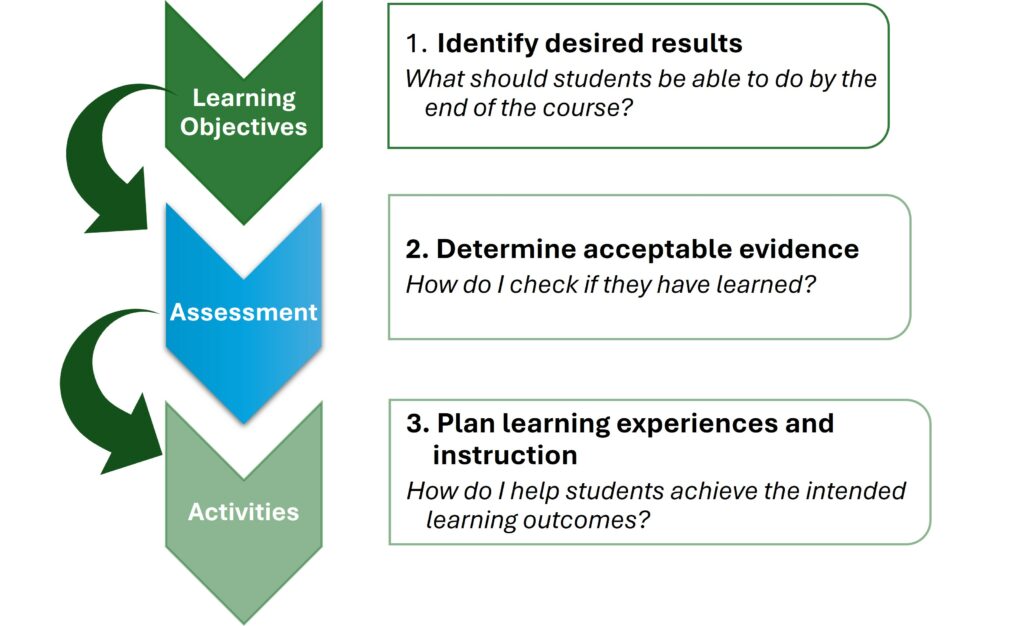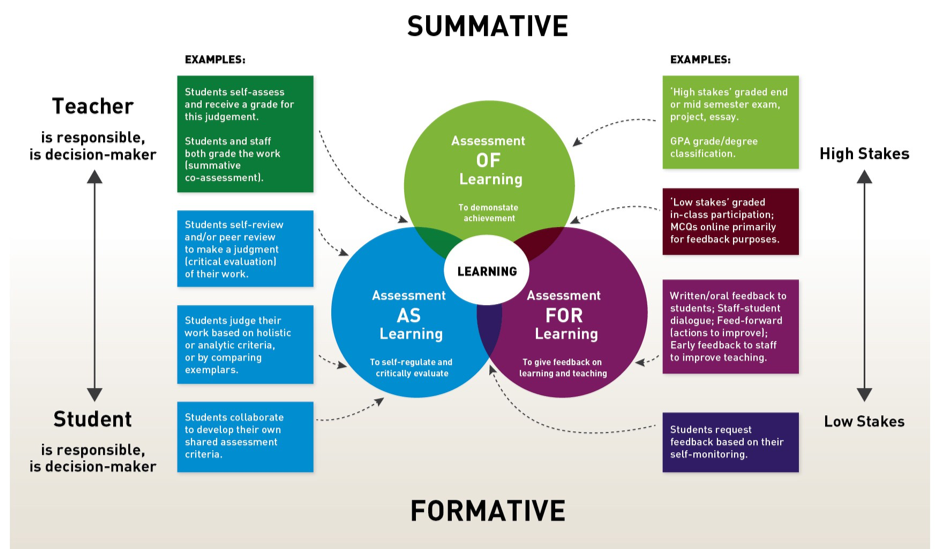Assessment is the practice of observing and evaluating student progress throughout a course to enhance student learning. Effective assessment adheres to several key principles:
VALID: The assessment must truly measure what it claims to measure, not extraneous factors. It must align with learning outcomes and instructional strategies
MANAGEABLE: Assessment processes should not overwhelm instructors or students with unnecessary complexity.
FORMATIVE/DEVELOPMENTAL: Assessments should provide timely and actionable feedback that guides students in their learning process and helps them improve. Assessment as/for learning
AUTHENTIC: Tasks should resemble real-world contexts and challenges, allowing students to apply their knowledge and skills in practical situations.
INCLUSIVE: Assessment should be free from bias and accessible to all students, giving each individual an equal opportunity to demonstrate their understanding.
When you design an assessment, consider the following questions:
Which learning objective is the assessment supposed to measure and what level of thinking is required?
What type of assessment is the most suitable?
Is the assessment inclusive and authentic?
Is there any scaffolding needed?

Test Anxiety
Research suggests that student test anxiety can significantly impair academic performance, and here are some practices that may mitigate this:
Practice Exams: Offer mock exams to familiarize students with the test format.
Clear Instructions: Provide clear, concise instructions and expectations for assessments.
Feedback: Give constructive feedback to help students improve without increasing anxiety.
Scaffolding: break down the huge/high-stakes assignments and provide timely feedback to guide students.
Flexible Timing: Allow ample time for tests to reduce pressure.
Resubmissions: Give constructive feedback and allow students to revise and resubmit.
Alternatives: Consider alternatives to timed close-book exams, such as open-book tests, collaborative problem solving, simulation,…
Assessment of/as/for Learning
“Assessment of learning”, i.e. assessment as a final evaluation of learning, is not the only role that assessment plays in the learning cycle. There is also “assessment for learning” and “assessment as learning.
[LOs-Assessment-Activity]
source: https://www.harapnuik.org/?p=8475
“Assessment for learning” is an approach to teaching and learning that creates feedback which is then used to improve students’ performance. In “Assessment as learning”, students become their own assessors. They monitor their own learning, ask questions, and use a range of strategies to decide what they know and can do, and how to use assessment information for new learning. Here are some practices that emphasize these aspects of assessment:
-
co-create rubrics and exam questions with students
-
peer and self-assessment



